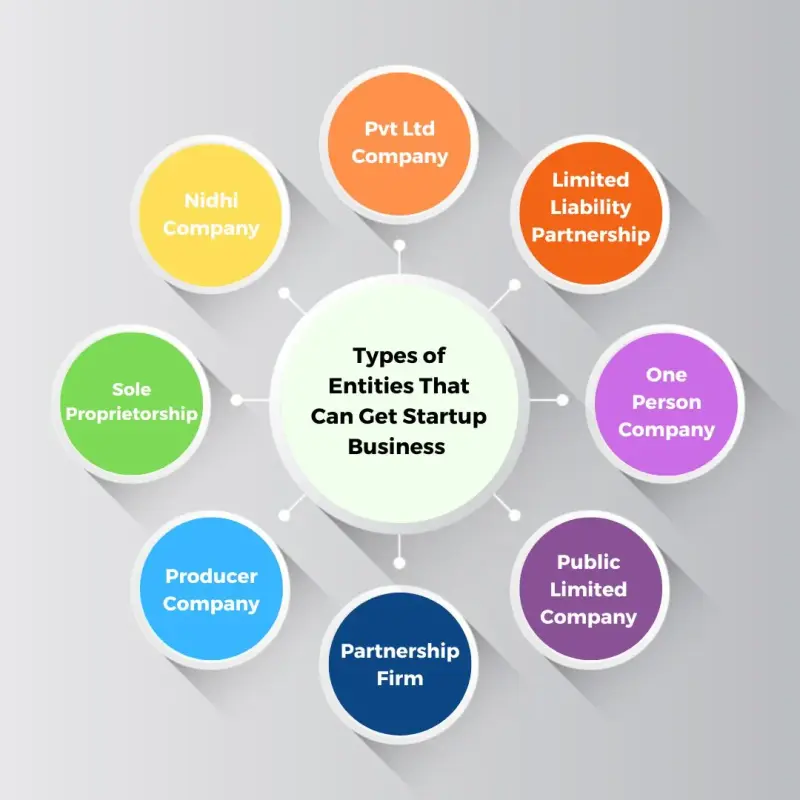In terms of the sheer quantity of entrepreneurs, we have advanced so far that we barely remember the period before the launch of startup India. Start-ups have created prospects for growth and income in a number of industries. Startup registration in India has currently opened the door for more creativity, more money, and more optimism for the future.
In India, startups are becoming more popular. The startup India programme, designed and supported by the Indian government under the leadership of the PM, aims to recognise and promote start-ups across the country through a start-up India registration. So, how do you sign up for Startup India? Eligible businesses may submit an application to the Industrial Policy and Promotion (DPIIT). It needs to be classified as a startup to be eligible for advantages like streamlined compliance, quicker IPR processing, and tax savings.
So, it is pertinent to know all the whats, Hows, and eligibility procedures to make it big in the Startup culture in India and avail its benefits.
What is Startup India Registration?
Under the flagship startup India project, startup registration in India refers to the registration of a business entity, such as a corporation, sole proprietorship, LLP, or partnership firm.
You will receive a number of advantages from startup India registration by registering your company there. These advantages range from having exclusive consideration for government projects to having access to government programmes.
Startup Registration Eligibility
Startup India registration eligibility requires miniscule criteria. They are as follows:
- You ought to be a new startup business: The applicant business entity must be less than seven years old and registered or incorporated in India.
- Your current annual revenue shouldn't be more than INR 25 crore.
- Your company should be innovative: The goal of the applicant's business entity should be to develop, innovate, implement, and commercialize innovative goods and services that are supported by new IP or technology. Too many businesses attempt to register their firms in India without giving innovation any regard. That's wrong, it takes time setting up the inter-ministerial board, and it can seriously harm your chances of getting a startup registration in India.
- The certificate must first be obtained from the inter ministerial board: Inter-Ministerial Board Setup certification should have been acquired by the applicant.
Documents Required For Startup Registration
- Startup India registration documents incases these documents:
- Scanned copy of a PAN card
- Latest bank statement, utility bill, phone bill, gas bill, or voter ID that has been scanned and notarized in English
- Utility bill for registered address
- Passport-size photo

Startup Registration Process
Procedure for startup registration includes various steps. Read carefully and follow the procedures to ensure your successful startup registration.
Step 1: Incorporate Your Business
Creating a legal entity for your business is the first step in Startup India registration. Your company must be incorporated as a Pvt Ltd company, a partnership firm, or a limited liability partnership before you start operations. The typical procedures for registering a company must then be followed, including obtaining the incorporation certificate, the PAN, and any other relevant regulatory requirements.
Step 2: Create a Startup India account
Go to the startup India website and fill out an application form with the details of your company or business. Enter the OTP and additional data, like the type of user, the user's name, and the starting stage, after that. As soon as these details are entered, the startup India profile is generated.
Step 3: DPIIT's Acknowledgement
You get confirmation from DPIIT in the third step of the startup registration in India procedure. After creating a profile on the startup India website, you must apply for the DPIIT. Startups now enjoy a number of benefits as a result of their early-stage status, including lowered public procurement hurdles, self-certification under labour and environmental laws, faster dissolution procedures, and three-year access to a pool of capital.
Step 4: Acknowledgement and Use of Acknowledgement
Examine the information about the recognition application that is displayed on the website.
Step 5: Getting the Registration Documents
The Startup India portal lists the cost of registering a startup in India. No other form of submission is permitted; only pdf is required. To complete the startup India online registration process, the following documents must be submitted:
- The business's certificate of formation or registration
- Information about the board of directors
- Pitch decks, websites, and videos are examples of proof of the concept in the context of validation or developing stage businesses.
- Detailed trademarks and patents PAN
Step Six: Acknowledgement Count
A recognition count will be given to your startup right away after you submit your application. After all of your paperwork has been examined, the certificate of recognition is given out. From the time you submit the necessary data online, it shouldn't take more than a few days.
Step 7: Additional Points to Think About
Patents, trademarks, and design registration: For help obtaining a patent for your invention or a trademark for your company, get in touch with one of the facilitators mentioned on the government website. Patents, branding, and registration of designs: Paying only the statutory fees could reduce your overall expenses.
Regalguru Can Help New Businesses Register in India
Regalguru offers comprehensive solutions for establishing your startup India registration certificate. Our startup registration consultants offer:
- Submitting an application
- Creating content to respond to inquiries from startups
- Incorporation of a corporation
- Keeping in touch with the startup division.



